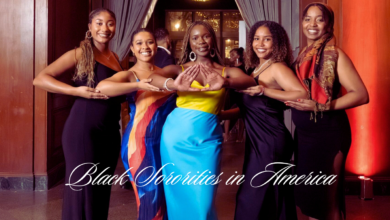The internet era has changed media consumption, especially celebrity culture. With advanced picture and video manipulation tools, reality and fantasy are blurring. “Celebrity fakes”—digitally altered photos and films of celebrities—have spread on social media and news sources. From minimally edited photographs to entirely invented settings, these fabrications affect public opinion. This article examines celebrity fakes’ production, transmission, and social impact.
The Evolution of Digital Manipulation Technologies
Digital manipulation has evolved dramatically from the early days of simple photo retouching to advanced techniques that can create hyper-realistic images and videos. In the past, photo editing was a laborious process reserved for professionals with access to specialized equipment and software. Today, powerful editing tools are readily available to the average consumer, thanks to software like Adobe Photoshop and free applications like GIMP. Additionally, the rise of artificial intelligence has introduced deepfake technology, which uses machine learning to create eerily realistic videos of people saying and doing things they never actually did.
Deepfakes, a portmanteau of “deep learning” and “fake,” represent the cutting edge of digital manipulation. This technology can generate compelling videos by analyzing vast amounts of visual data and mimicking the subject’s voice, facial expressions, and movements. The implications are staggering, as these videos can be virtually indistinguishable from real footage. The accessibility of such technology has democratized the creation of digital fakes, allowing anyone with a computer and internet access to produce high-quality forgeries.
The Role of Social Media in the Spread of Celebrity Fakes
Social media is the primary source of celebrity fakes. Instagram, Twitter, and TikTok are full of edited photos and videos shared without inspection. Social media is viral, so these fakes may reach millions of people in minutes and propagate disinformation at an unparalleled rate. These platforms’ algorithms prioritize engaging material that promotes sensational and provocative articles like celebrity fakes.
The quick distribution of altered photographs and videos has serious consequences. First, it may tarnish celebrities’ reputations, causing indignation or undeserved praise. Second, it damages digital media trust. Skepticism grows when consumers learn about fakes, making it hard to tell real from fake media. Beyond celebrity news, skepticism may damage genuine news sources and contribute to “fake news.”
Psychological Impact on Public Perception
The psychological influence of celebrity fakes on public perception is significant. Multiple exposures to altered pictures and movies corrupt reality. This is especially worrisome in celebrity culture, where admirers idolize and imitate famous individuals. Digitally manipulated photos create unrealistic beauty standards, poor self-image, and bodily dysmorphia among impressionable audiences.
Celebrity fakes may also sway public opinion on important subjects. A deepfake video of a celebrity advocating a political candidate or social cause might impact public opinion if not promptly exposed. This manipulation may affect elections, legislation, and social movements. The ease of creating and spreading digital fakes threatens public debate.
Legal and Ethical Considerations
Celebrity fakes have severe legal and ethical concerns. Digitally modified photographs and videos might violate privacy, intellectual property, and defamation laws. Celebrities have limited private rights but are protected against slander as public figures. Digital manipulation victims may have trouble getting justice since laws typically lag behind technology.
Celebrity fakes pose ethical problems concerning permission, authenticity, and content producer and platform duty. These fakes typically use celebrities’ likenesses without authorization, compromising their autonomy and perhaps harming them. As the infrastructure for viral disinformation, platforms that host and promote such content are likewise responsible. How social media businesses should be held accountable for information and how they should combat fakes is a hot topic.
The Future of Digital Manipulation and Celebrity Culture
Digital manipulation’s influence on celebrity culture is unpredictable as technology improves. Improvements in detecting technologies may help stop fakes. Researchers are creating algorithms to recognize faked photos and films but must compete with more advanced editing techniques. Public recognition and critical evaluation of digital information need education and media literacy.
However, generating and consuming spectacular material will remain appealing. The entertainment appeal of celebrity fakes and the economic incentives for viral content imply digital tampering will persist. Balancing technology advances with ethical concerns and protecting people from disinformation is difficult.
Conclusion
Digital manipulation significantly influences public image, especially in celebrity culture. The effects of editing technology and social media distributing fakes are considerable and diverse. The psychological impacts on audiences, legal and ethical issues, and the future of digital manipulation all require attention and critical thought in the digital era. Media consumers must question the validity of what they see and demand more openness from platforms that impact our impressions. We can only reduce the harm of celebrity fakes and protect public debate by working together.
FAQs
What are celebrity fakes?
Fake celebrity photos and videos show celebrities in ridiculous positions. This includes benign fan art and adult content generated with picture editing tools or deep fake technologies.
Are celebrity fakes legal?
Celebrity fakes’ legality depends on jurisdiction, substance, defamation, or copyright violation. Creating and spreading bogus content without permission can be illegal if it hurts a celebrity’s reputation or rights.
How can I identify if an image or video is a celebrity fake?
Technological improvements make it challenging to spot false images and videos. However, search for lighting, shadow, and proportion discrepancies and false facial emotions or movements for the celebrity.
What are the ethical concerns surrounding celebrity fakes?
Consent, privacy, and reputation or mental health issues are ethical considerations with celebrity fakes. Ethical issues arise when using someone’s likeness without permission, especially for explicit or deceptive content.
Can celebrity fakes be harmful?
Celebrity fakes have several drawbacks. They can misrepresent celebrities, propagate disinformation, and infringe privacy by modifying photographs or videos without consent. Both celebrities and followers might be emotionally traumatized by obscene or insulting phony content.
What should I do if I come across celebrity fake content?
Report damaging or inappropriate celebrity false content to the platform where you discovered it. Many social media and forum platforms prohibit false or inflammatory information. Educating people on the hazards and ethics of spreading fraudulent content can encourage appropriate online behavior.





